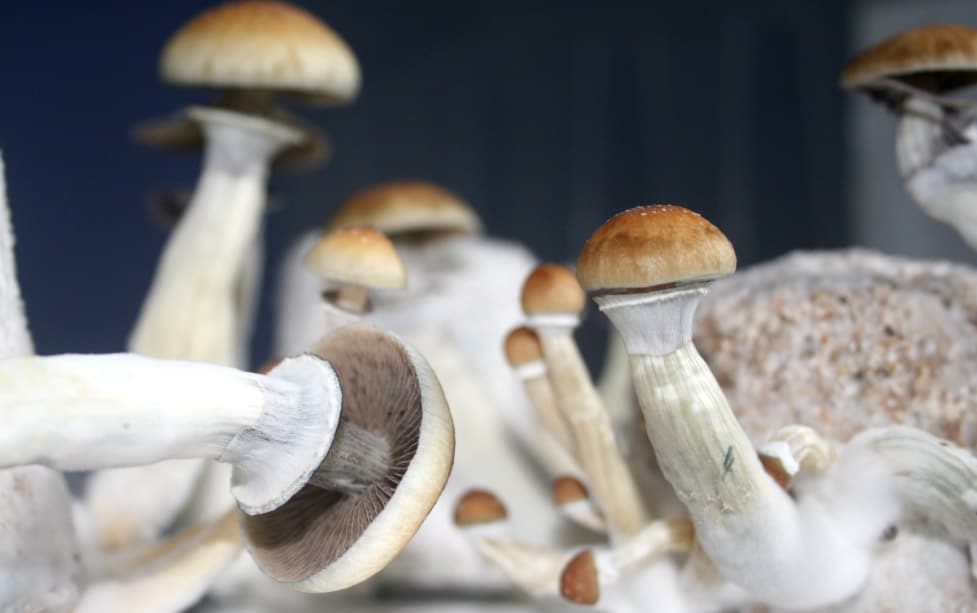A Washington, DC political action committee (PAC) is backing a bid for a psychedelic ballot measure in Massachusetts—seemingly without consulting local activists, who describe it as a distraction from their own efforts. A draft proposal reveals the measure would decriminalize psychedelics and legalize them for healing purposes, though as with other such initiatives, questions remain about accessibility and affordability.
On July 3, Danielle McCourt and Meredith Lerner Moghimi filed paperwork with the Commonwealth of Massachusetts to propose a ballot question for the 2024 general election, supplying residential addresses in Boston. Lerner Moghimi is president of MLM Strategies, a Massachusetts-based political fundraising and consulting firm. McCourt is founder of political consulting firm DLM Strategies, and served as finance director for then-Attorney General Maura Healey (D), who is now Massachusetts’ governor.
Their stated goals are “To expand mental health treatment options in Massachusetts by providing new pathways to access natural psychedelic medicine therapy,” through “Creating access to natural psychedelic medicine therapy and removing criminal penalties for personal possession of these medicines.” The pair have formed the committee “Massachusetts for Mental Health Options” to organize this bid.
Media requests were redirected to Ben Unger at New Approach, a DC-based PAC that has been active in supporting drug policy reform measures nationwide. Filter was unable to reach Unger by publication time, and the PAC legal director did not respond to a request for comment.
The state would allow regulated legal use of these substances under trained supervision from licensed practioners, who would charge for products and services.
According to Ballotpedia, New Approach donated $10.4 million to campaigns around the country between 2014-2020, including marijuana legalization ballots in Oregon, Massachusetts, California, Michigan and Missouri. It also supported Measure 109 in Oregon, which legalized psilocybin mushrooms for healing purposes according to strict rules, and Proposition 122 in Colorado, which decriminalized naturally occurring psychedelics for personal use and also legalized for healing purposes. And it supported Question 4 in Florida (2018), which restored voting rights to people with felony convictions (before Governor Ron DeSantis did everything he could to undermine it).
Psychedelic Week, a newsletter and podcast by Mason Marks, a law professor at Florida State University, obtained a draft of the Massachusetts initiative itself, titled the “Plant-Based Psychedelic Substances Health Act.” An official deadline to file a petition with the state is approaching on August 3.
The initiative applies to psilocybin, psilocin, dimethyltryptamine (DMT), mescaline cacti (but not peyote) and ibogaine. It would end criminal penalties or fines for personal use and “potentially” for cultivation of these substances, but would not permit buying or selling them outside of a regulated therapeutic framework. It would restrict any “remuneration,” “business promotion” or “other commercial activity.” The state would allow regulated legal use of these substances under trained supervision from licensed practioners, who would charge for products and services.
Massachusetts would charge a 15 percent excise tax and 2 percent local tax on sales of psychedelics. These revenues would pay for the state’s overhead costs in creating rules and issuing licenses for psychedelic healing services. A new agency, the “Plant-Based Psychedelic Substances Control Commission,” would be created to oversee psychedelics. It would license “producers, centers, testing labs” and locations for providing psychedelics services, including “health facilities, hospice, and residences.” The draft mentions providing “grants for equity” to make psychedelic services accessible regardless of income, without being more specific.
On July 17, Massachusettes activist group Bay Staters for Natural Medicine released a statement along with New England Veterans for Plant Medicine and Parents for Plant Medicine, as Psychedelic Week reported. Bay Staters has successfully advocated for decriminalization of naturally occurring psychedelics in six cities and towns in the state: Amherst, Cambridge, Easthampton Northampton, Salem and Somerville. Each approved a council resolution to make arrests for possession, sharing or engaging in practices with psychedelics their “lowest law enforcement priority.”
“Rather than helping out with our existing efforts, this PAC is distracting from the local work here.”
“We’re a community group that has helped thousands of our neighbors in Massachusetts microdose to alleviate nerve pain and depression, using just a small piece of mushroom to produce benefits without hallucination,” Colomba Valencia, communications director for Bay Staters, said in the press release. “This referendum must protect microdosing, and these outsiders should give back to help us educate.”
“Rather than helping out with our existing efforts, this PAC is distracting from the local work here of Bay Staters,” said Michael Botelho, co-founder of New England Veterans for Plant Medicine.
The groups pointed out that Massachusetts lawmakers are already pursuing psychedelic reforms through two bills. Representative Lindsay Sabadossa (D) and Senator Pat Jehlen (D) are sponsoring legislation to decriminalize personal use, growing and gifting of these same psychedelic substances. Bay Staters reported that hundreds of residents showed up to testify at a June Judiciary Committee hearing.
In the press release, they also criticized the expense of Oregon’s psilocybin-legalization model, which New Approach supported. As Filter has reported, Oregon has created a highly regulated and costly psilocybin service program, leaving treatment out of reach for many working and lower-income people. The posted price for a high-dose, individual psilocybin session at the nation’s first psilocybin “service center” is $3,500.
It’s not the first time that rival psychedelic reform efforts have been under way in one state. In Colorado last year, for example, some advocates campaigned for Proposition 122 while a separate group, Decriminalize Nature, worked to gather signatures for a different, ultimately unsuccessful, decriminalization measure.
It’s possible that New Approach sees a potential ballot measure as backup in case the legislature fails to pass current bills. In that event, it remains to be seen if Bay Staters and other local psychedelic advocacy groups would get behind it.
Photograph by Walter Henrique Pedron Moschen via Wikimedia Commons/Creative Commons 3.0





Show Comments